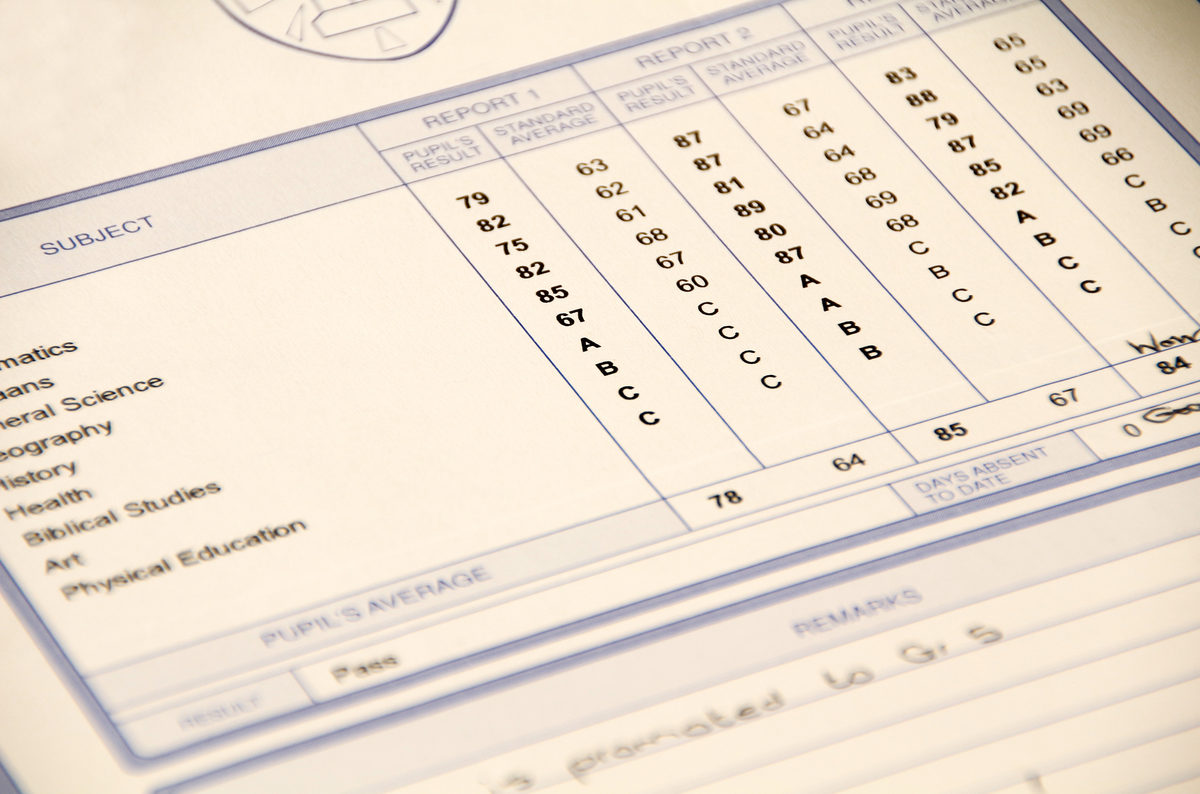 High School and Grades
High School and Grades
Many of us have not assigned grades for our children’s homeschool work. But now that our teens are entering high school, grades may have a place in our homeschool.
Why grades
Grades document high school level work. They serve as an evaluation of your student’s work as well as a source of motivation for your student to keep learning. Grades also communicate your student’s performance and potential to college admission counselors, future employers, military recruiters, and others. So how do we go about grading our students?
What does a grade represent
Grading is based on the traditional standards – A for excellent performance, B for good performance, C for satisfactory performance, D for less than satisfactory performance, and F for failure in performance. The words, ‘excellent,’ ‘good,’ and ‘satisfactory’ provide a clue that grading can be quite subjective for the homeschooling parent. But don’t think you are alone; even public or private school instructors have to deal with a certain amount of subjectivity. How do we then grade more objectively?
Assigning a grade
‘High School Courses and High School Credits’ discussed a typical high school program and how to determine high school credits. //www.christianhomeschoolersofhawaii.org/…/high…/
Now to assign a grade for that high school credit, you will need to determine what warrants an A grade, B grade, etc.
- Will grades be based on just quizzes and tests?
- What about written reports or essays, projects, presentations?
- Will daily assignments and participation also be considered?
- Will grades be weighted? That is, will different assignments be given a greater value; e.g. daily assignments weighted at 20% and tests weighted at 80% of the grade?
Grading for some subjects is fairly simple. This is often true for math and science.
“Grading Math” explains the process, with grades being determined by daily assignments, test scores and weighting. //www.christianhomeschoolersofhawaii.org/w/index.php/grading-math/
Subjects such as English composition, history, or electives may require more thought.
- What writing assignments will be graded for English? And how will they be graded? If you use an English program that teaches composition skills, the program may also include a way to assess your student’s writing. Don’t forget to ask a teacher friend to evaluate your teen’s writing.
- What will your teen be required to complete for World History? And how will that be graded? Written assignments? Tests? Oral discussion? Projects?
Grading Scale
Finally, you will also need to adopt a grading scale. A traditional percentage scale is A = 90-100%; B = 80-89%; C = 70-79%; D = 60-69%. Another option is: A = 93-100%; B = 85-92%; C = 77-84%; D = 63-70%.
As the parent teacher, this is your choice, but it is suggested your grading scale be consistent for all courses.
Final thoughts
Remember, there will always be some subjectivity to grading.
Pray for wisdom from the Lord – you are doing your best by the grace of the Lord!
If you have any questions, email CHOH at info@christianhomeschoolersofhawaii.org
We are here to serve you!
CHOH Board
 High School and Grades
High School and Grades